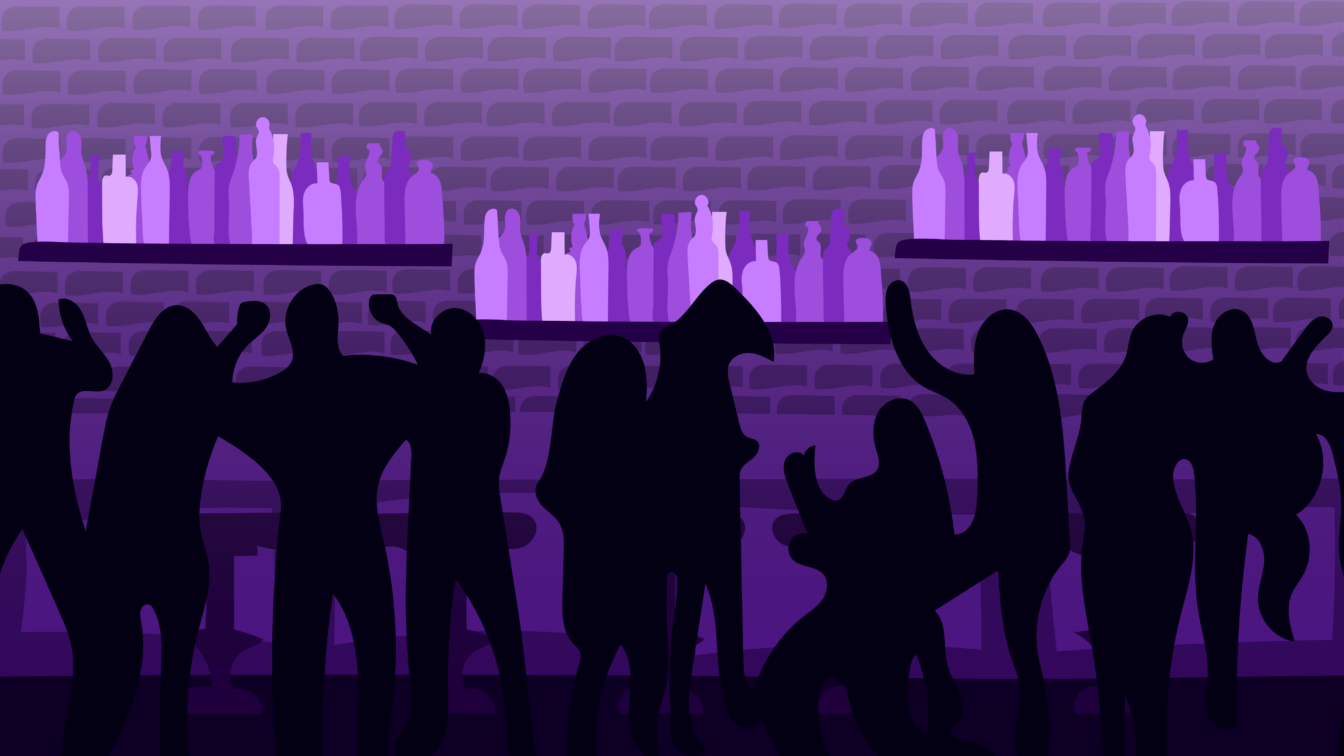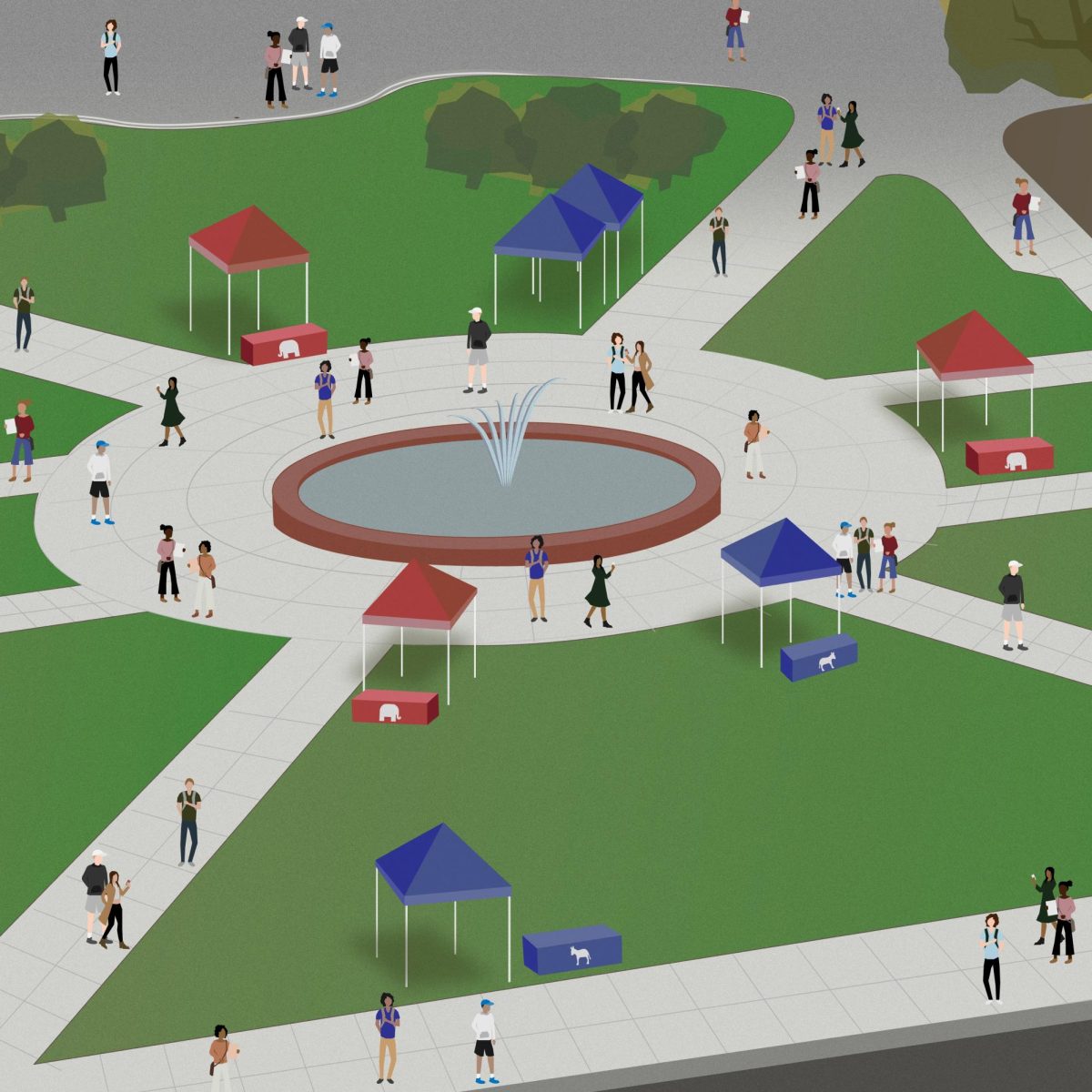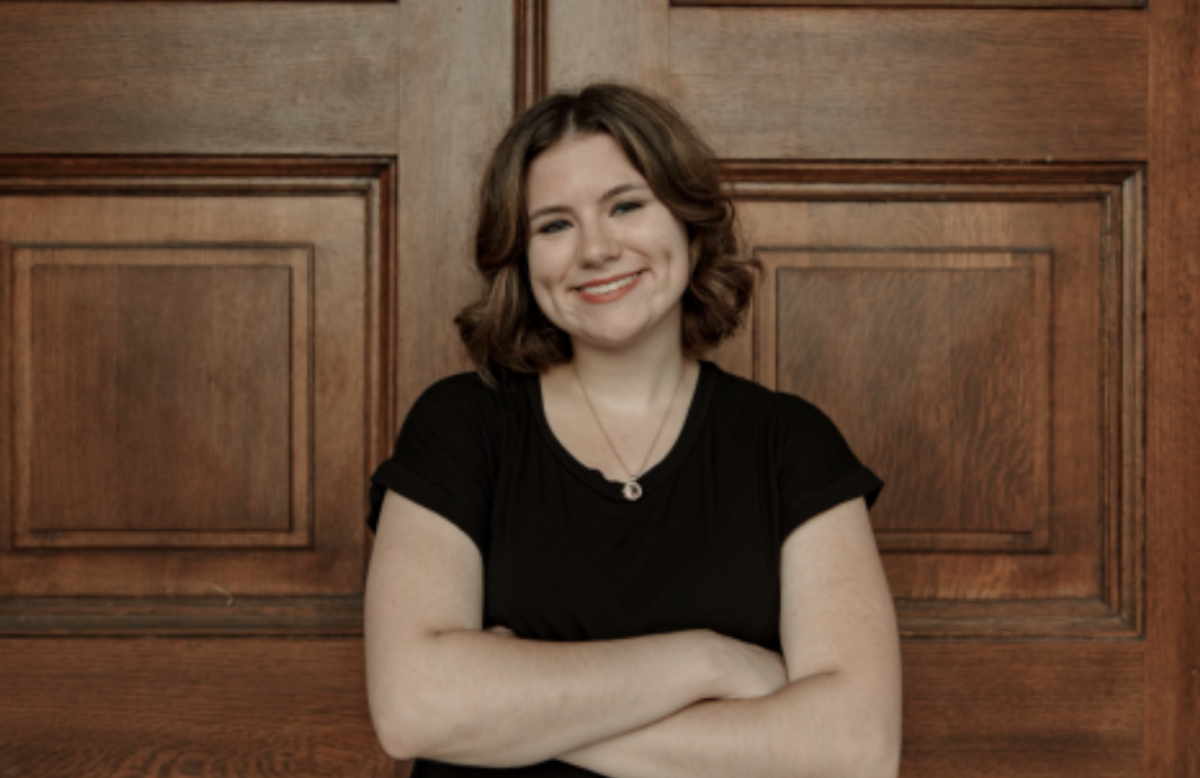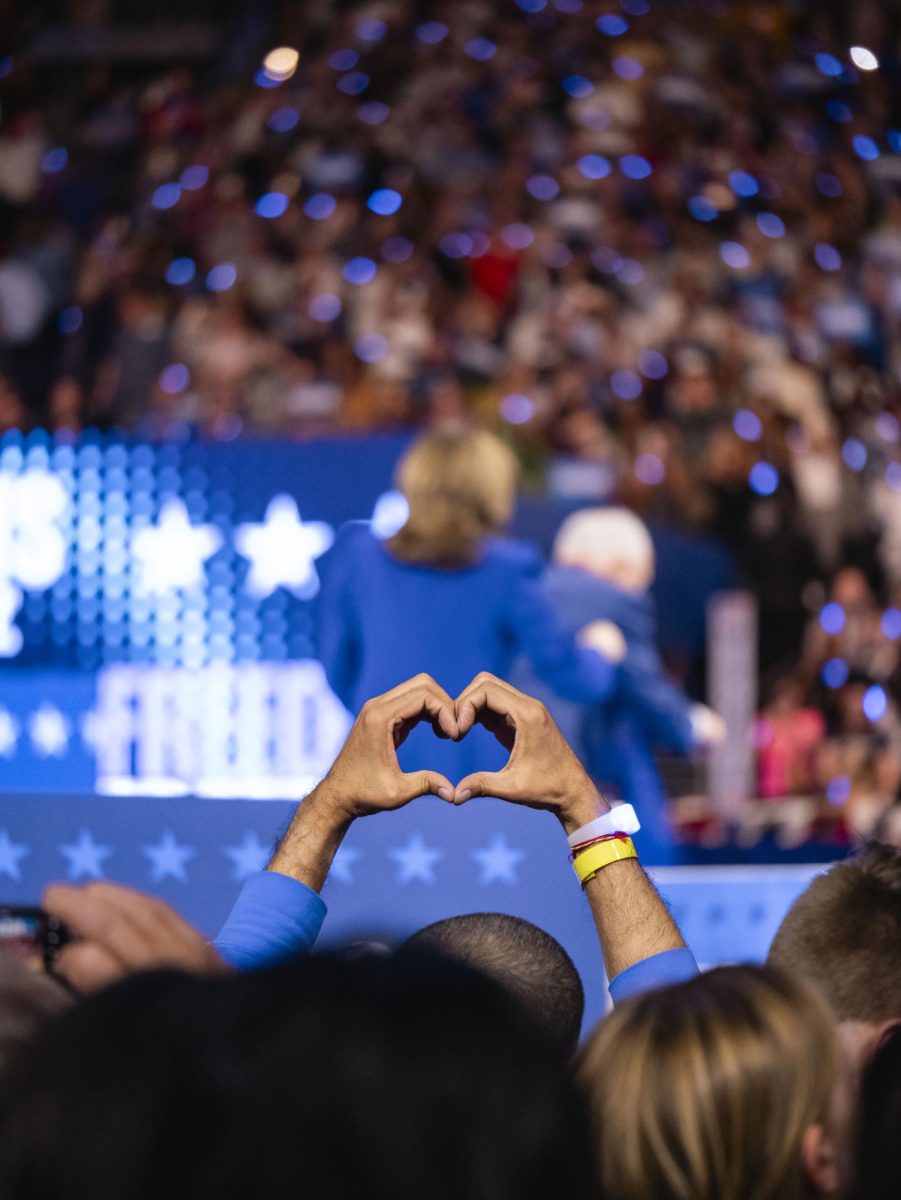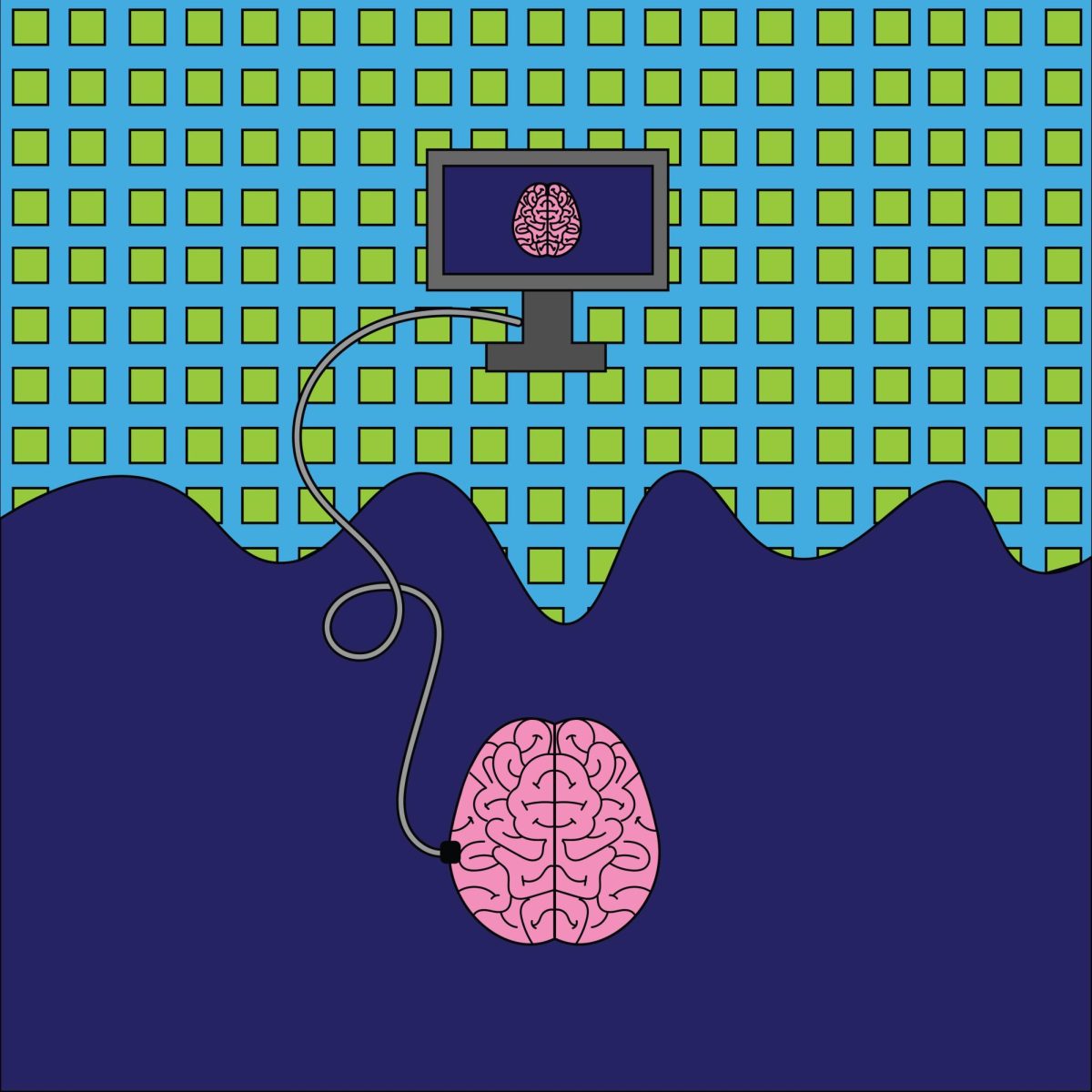Every weekend, students at the University of Wisconsin fill the streets near campus, waiting in long lines to gain entry to their favorite bars.
“There’s always lines at the bar,” UW junior Christina Treacy said. “If one bar is full or not fun, there’s five more to pick from.”
Bar culture is a huge part of Madison nightlife, according to Treacy. In fact, only two states in the U.S. — North Dakota and Montana — have more bars per capita than Wisconsin. For every 1,877 Wisconsin residents, there is one bar.
The prevalence of drinking on campus is well-known, as UW requires first-year and transfer students to complete an online prevention education program known as AlcoholEdu. And while 25.3% of students identified as non-drinkers before starting school in 2019, this percentage decreased to 17.6% after the second AlcoholEdu survey.
“It’s kind of almost expected of students here,” Treacy said. “And so sometimes, you put yourself into that culture and [if] you’re not going out on the weekend, it’s almost like you’re missing out.”
Not every person who chooses to participate in the UW bar culture has the same experience, though.
For senior Evan Langone, bar life depends on the place and people. Langone said as a gay man, he pays careful attention to the demographics of people at bars to ensure a safe environment.
“I feel uncomfortable going to somewhere like Red Rock or Whiskey Jacks where the primary demographic is Greek life,” Langone said. “Historically, they’re not very nice to the LGBTQ community or women, so I try to avoid places like that.”
Anna Coe, a UW senior, echoed a similar sentiment. While the bars themselves tend to be inclusive, that’s not always the same for the people inside, Coe said.
Certain bars near campus are working to prevent the type of unwelcoming environment described by Coe and Langone by taking efforts to create a welcoming, accepting and safe place for students to spend their nights out.
Not Your Average Bars
When Susan McKinney and her two daughters moved from Mexico to Madison in 2012, she connected with a friend who opened Sotto Night Club two years earlier. She soon started working there and helping out.
McKinney’s involvement with the business quickly grew as she took on more responsibilities throughout the years and eventually became the owner and operator of Sotto in Nov. 2020 after purchasing the night club.
Originally from the United States, McKinney spent a portion of her life living in Mexico. Her two daughters were born there, and all three of them speak Spanish.
McKinney now runs Sotto alongside her two daughters who work as managers, making the business completely female-owned and operated. With a multicultural view of the world, the family has always been welcoming to people of all nations and beliefs, McKinney said.
“[Sotto] was known as a gay bar,” McKinney said. “And then over the years, it just kind of organically — you know, people from the neighborhood came in, people from many nations started coming in. I would say our inclusivity — Madison already has it, and it has found a home here.”
In 2021, McKinney was approached by a dance teacher who liked the space that Sotto offered. He showed interest in teaching a salsa class, which now takes place every Wednesday and brings in people of all ages.
McKinney said she is proud of the environment the night club provides for the Latinx community, and works hard to provide an environment where everyone who comes into Sotto feels safe. At the door, individuals must go through a metal detector to prevent weapons from entering the building.
The staff also remains aware of the safe, happy culture McKinney strives for. So much so that it is not talked about anymore — the staff just “lives it,” McKinney said.
Paper cuts deep: The evolution of Wisconsin’s paper industry
Sotto isn’t the only bar near campus taking efforts to provide a more dynamic and welcoming environment for guests.
Andrew Greenwood holds many fond memories from 614 University Avenue. As a longtime regular of the Karaoke Kid, he was disappointed to hear of the bar closing its doors for good in 2020.
About a year later, Greenwood had an instinct to open a bar.
He met with the landlord of the former Karaoke Kid, and the two quickly saw eye to eye. Before making any decisions, Greenwood told his grandma about the idea.
“I always really liked to talk to my grandparents and kind of think [about] what they would do,” Greenwood said. “[My grandma] told me a story about my great grandpa [owning] an illegal bar, and I just got the right vibe.”
Going with his gut feeling, Greenwood opened Mom’s Bar on Feb. 14, 2022 at the former location of the Karaoke Kid. From the beginning, he wanted to create a fun, safe and vibrant place that celebrates differences.
And Greenwood works to ensure this in every detail — from the physical space to the staff.
“We’ve got a kaleidoscopic rainbow shooting around [and] a rainbow glitter floor,” Greenwood said. “And the bar looks different — it’s got a different vibe. It’s a little more of a soft, kind of warm hole in the wall and not very heavily branded. We don’t really have any visible venues or not too many TVs — it’s definitely different visual styling than most bars around.”
To provide a welcoming environment for all, Greenwood takes time to hire an understanding and kind staff. He hopes to create a culture that isn’t strict or based on in and out groups.
While bars today paint a picture of enjoyment and entertainment for customers, things weren’t always smooth sailing for the establishments themselves.
Persevering Through Obstacles
The year 1920 marked the beginning of the Prohibition Era in the United States, when a ban on the sale, development and movement of alcohol went into effect. During this 13-year period, 319 N. Henry St. — now known as The Plaza Tavern — was a speakeasy, according to Plaza general manager Ian Miller.
Plaza has remained a secret little bar since its opening in 1963, almost like the speakeasy that used to occupy the space, Miller said. Since it sits off the main strip of State St., many students pass it by.
Within the walls, though, the sense of community is undeniable, according to Miller.
“There’s people that come back after being in college and say, ‘I can’t believe I never came here while I was in school.’ Miller said. “But they come back to their friends, and their friends bring them here and they’re like, ‘Yeah, I don’t know why I wasn’t hanging out here before.’”
Miller started working at the Plaza as a manager in 1998. Throughout his time at the bar, he’s noticed a varied crowd of individuals stopping by.
Plaza customers range from younger kids going to school to older, blue-collar workers, Miller said. The crowd at the bar depends on what’s going on in Madison. For example, if there’s a show in town, Miller said that brings in a different crowd.
“It’s one of the things that’s appealed to a lot of the customers and a lot of employees here is that it’s always been a bar that kind of attracts everyone,” Miller said. “Everyone’s kind of friends that wouldn’t necessarily hang outside the Plaza but will hang out here together.”
My Voice, My Vote: Student vote plays foundational role in decisive election
In March, 2020, things shifted – the COVID-19 pandemic forced the Plaza to close its doors.
The bar remained empty, except for the few days a week where individuals could order carryout or delivery services.
“It was really sad,” Miller said. “We were trying to save every single penny we could — we didn’t even have the lights on. We just had the grill and the front lights when people would pick up food, but otherwise it was almost completely dark in here for a long time.”
A lack of physical space didn’t deter the strong community the Plaza worked to build.
Individuals found other ways to offer support and keep the bar afloat, Miller said.
When the Plaza put out a GoFundMe in Oct. 2020, they surpassed a $75,000 goal in just six days. Regulars also stopped by the bar to offer cash donations, Miller said.
“Alumni that used to go here when they were at school were so supportive and friends of friends just down the line,” Miller said. “Just massive support for the Plaza, and they’re still saying it now.”
Now functioning at full service, the Plaza will continue to roll with the punches, Miller said. Though sometimes understaffed and overwhelmed, the bar maintains a welcoming atmosphere for all.
“I hope [people] feel like [they’re] part of a family,” Miller said.
At Mom’s Bar, Greenwood said the future of the new establishment is a work in progress. It will take about two years to make the bar all that it’s meant to be. Despite having double the space as the previous bar, the city currently limits the business to a 50-person capacity and midnight closing time.
Changing the capacity limit is Greenwood’s first priority.
“When we fill our bar up to 50, we’re half-full,” Greenwood said. “So we are currently servicing half the amount of people that we could, and we currently have lines out the door up to two blocks long. We’re not trying to overdo what should be in there, but we’re trying to get around 70 [or] 80 people to have it vibrant and full without being dangerous.”
As Greenwood works with the city to change these restrictions, he has found other ways to further support the community.
In the past, the bar hosted neighborhood parties to celebrate local individuals in the service industry. Mom’s also held an event where the proceeds went to help keep local LGBTQ youth in high school safe.
“We have a growth and creativity mindset,” Greenwood said. “We are inclusive to everyone, and we are patient, hardworking and focused. So, whatever hoops [the city] puts in front of me, I will go through happily.”
Greenwood has a lot of ideas for the future of Mom’s Bar in order to make it a “jewel of the community.”
He hopes to partner more with UW, community groups, foundations and movements in the future. Ideally, Greenwood said he will open five or 10 more Mom’s karaoke bars in the region.
“I’m always learning from everyone that comes in,” Greenwood said. “It’s been probably the most enriching phase of my life so far, and I’m very grateful.”
‘I Feel More Included’
For Christina Treacy, a big part of UW nightlife is dancing. Over the past summer, she spent many nights at Sotto Night Club.
“The vibe is a lot different than the bars,” Treacy said. “I feel like everybody’s dancing or if you’re not dancing, it’s just a lot more of an ‘upbeat, everybody gets into it’ vibe. There’s a lot more than just sitting down [and] hanging out with your friends in a group.”
On Thursdays, Treacy waited in long lines — sometimes lines that wrapped around the building — for Latin Night. During Latin Night, individuals have the chance to drink Mexican beers and dance along to music.
The DJ plays a good mix of music, McKinney said. The songs range from Latino pop to reggaeton and salsa. Sometimes, the DJ mixes club dance music with salsa.
According to Treacy, two things make up the bar experience — music and people.
“I’ll be dancing in a circle with a group of friends, and then [other people] will come up to us and start dancing with us,” Treacy said. “You get people cheering you on, people in the circle around you — it doesn’t matter who you are. Especially if you can dance and if you’re dancing [to] Latin music.”
Evan Langone said Sotto stands out as a night club on campus, appreciating the club’s history of being gay-friendly.
“Overall, I just feel more included,” Langone said. “There’s more people there similar to me.”
When it comes to Mom’s Bar, UW junior Elinor Picek thinks one thing in particular stands out — the karaoke. Whenever the doors are open, karaoke is available, Greenwood said.
Picek still remembers the time her best friend joined her on the stage. They performed Katy Perry’s “I Kissed a Girl” while the whole bar sang along.
Mom’s Bar brings the campus together and provides an experience you can’t get anywhere else, Picek said.
“It’s focused on karaoke and accepting everybody — that’s what makes it so special,” Picek said. “And then all the people — there’s so many different people who have all different types of identities and it’s just super cool.”
As for The Plaza Tavern, individuals can expect a dive bar atmosphere, Treacy said. Colorful string lights decorate the walls, along with pool tables, arcade games and plenty of seating. Music plays quietly throughout the bar and is mainly by request.
Treacy said the Plaza stands out among other bars near campus for a few reasons.
“[Plaza] is very much a different vibe than a lot of the State Street bars,” Treacy said. “It’s a lot more chill. It’s cash only. And the people there are a lot different [from] your Greek Life culture. So even in outfits, you can tell [it’s] a lot less of the mainstream.”
Out of all the bars in the area, the Plaza proves itself as a favorite among Treacy’s LGBTQ friends for its accepting atmosphere and feel.
As a member of the community herself, Anna Coe appreciates the Plaza’s young, LGBTQ-forward crowd.
For the staff, the effort to provide an inclusive space at the Plaza begins as soon as people walk through the door, Miller said.
“The first thing is just literally greeting almost everyone that comes in,” Miller said. “When we are insanely busy, we don’t have that luxury, but [we] make sure that everyone knows we are here for you, we’ll talk to you and try to get the fastest server possible.”
Treacy can still remember the excitement she felt as she waited in the Plaza line for the first time. She ran into familiar faces who she didn’t know went out and made connections with people who shared similar interests.
When going to other bars, Treacy tends to stay close to a group of friends for the whole night, describing it as less of an open environment. At the Plaza, however, she always makes new friends.
“Some girl complimented my top and I started talking to her and her friends and then realized we had a bunch of friends in common,” Treacy said. “Then a whole other group came over, and I just met all these people randomly at Plaza and then I would see them there every weekend [when] I went back.”
Finding The Right Place
Treacy — who is originally from Minnesota — has spent some time hanging out near the University of Minnesota. Compared to UW, she said she noticed less people seem to engage in a drinking culture.
“It’s definitely different, especially because we have the State Street area which is so central,” Treacy said. “Whereas at the University of Minnesota, I think there’s probably still supplements of that — but there’s like two or three bars to choose from. Here, there’s five, six, seven or eight you can choose from.”
Bar life at UW can be an enjoyable experience but requires awareness, Coe said. This doesn’t just mean the amount of alcohol you consume but rather who you surround yourself with.
The two most important things are keeping yourself and others safe, along with listening to your gut, Coe said.
“I think that keeping your head up and trying to be as safe as you can while also not letting that ruin your time is the most important balance to have,” Coe said. “Being cautious and understanding other people’s experiences while also validating your own can be important.”
Culture of consciousness: Unearthing fashion’s history, labor practices to design a better future
Despite the efforts from staff, even inclusive bars fail to address patrons who exhibit harmful behaviors. Coe has only been to Sotto Night Club a few times — primarily on Latin Nights — but her main experience has included predatory behavior and nonconsensual advances from older men.
Coe recalled a time at Sotto with a group of friends. After leaving her friends, she was approached by older men despite making it clear she “was not interested at all.”
“For the most part it is super lively,” Coe said. “People seem super friendly, and it’s a fairly young crowd there. There are, however, multiple individuals, men who are usually older, that sort of stand in the corner or loiter at the bar, and you can just feel their eyes on the back of your head, watching you when you’re dancing or getting drinks.”
The Badger Herald reached out to Sotto Night Club via email regarding the situation but did not receive a response.
With so many possibilities near UW, bar culture may easily feel discouraging, Treacy said. Yet, finding the right places can feel like getting introduced to a new world.
This idea rings true for Evan Langone as well. In order to find bars he feels comfortable at, Langone gets togethers with a close group of friends and tries out new places.
And there’s a lot more bars than people know about, Treacy said.
“Don’t be afraid to maybe try a new place or go outside of your comfort zone a little bit to see, just because there’s always going to be more out there,” Treacy said. “I think that it’s just a matter of finding those places and experiences and figuring out whether or not that’s going to be your thing.”


